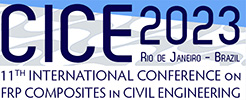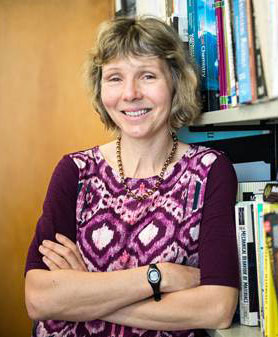

Kim Pickering
University of Waikato, New Zealand
Kim Pickering
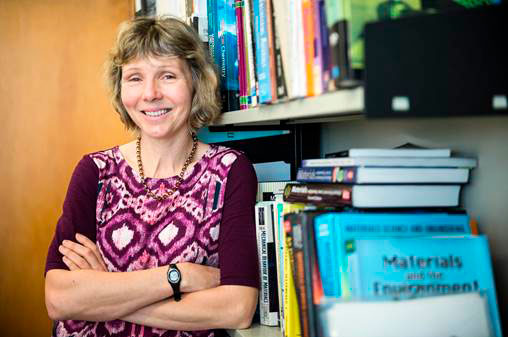 Kim Pickering
Kim Pickering
Professor Kim Pickering has been involved in materials related research for 34 years, specialising in composite materials. Prior to her current role, she was an industrial researcher at Plessey in the UK. She is the director of the Waikato Centre for Advanced Materials and Manufacture and has been leader of the Polymers and Composites Research Group, University of Waikato since 2000. Professor Pickering was elected as Fellow of Institute of Professional Engineers of New Zealand (IPENZ) in 2008, awarded Chartered Engineer Status and certified on the International Professional Engineers register (IPENZ) in 2005 and has been a Professional Member of the Institute of Materials, Minerals and Mining Communities (IoM3) since 2005. She has written more than 100 peer-reviewed journal articles, 6 patents and has more than 8,500 citations. She received her BSc(Eng) with Honours from Imperial College, London, and her PhD at Surrey University in the UK. She co-leads a multi-institution project on the 3D printing of biomaterials and is the principal researcher and leader of a NZ government funded “Āmiomio Aotearoa – A circular economy for the wellbeing of New Zealand” project. She is currently the Associate Dean of Research for the Division of Health, Engineering, Computing and Science at the University of Waikato.
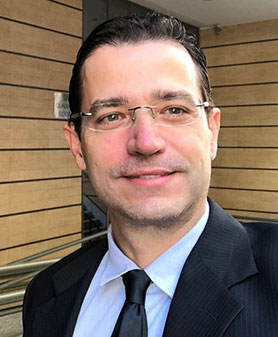

Sandro Amico
Federal University of Rio Grande do Sul, Brazil
Sandro Amico
 Sandro Amico
Sandro Amico
Professor Sandro Amico graduated in Chemical Engineering from UFRN, did his Masters at UNICAMP and the PhD at the University of Surrey (England). He is currently Full Professor at the Federal University of Rio Grande do Sul (UFRGS), in the Department of Materials Engineering, and his research focuses on structure, processing and properties of polymeric composites. He has published more the 260 journal papers, 500 conference papers, 25 book chapters and 4 patents, and has supervised 57 Master/Doctorate students. He was the Chair of the 3rd Brazilian Conference on Composite Material (BCCM-3), and recently won the Pesquisador Gaúcho Award from FAPERGS (2021) and the Technological Innovation Award from ANP – Category III (2020) with his team. He has a CNPq Research Productivity Grant, Level I-B (Eng II), with an H-index of 36 (ISI) and 46 (Google Scholar), and is associate editor of the Materials Research Ibero-american Journal. He leads a Composites research group (www.ufrgs.br/gcomp) and the development of a free web-based composite mechanics software (MECH-GCOMP, www.ufrgs.br/mechgcomp). His ongoing international collaborations include Politecnico di Milano (Italy), Luleå University of Technology (Sweden) and Leibniz Institute of Polymer Research-Dresden (Germany). https://orcid.org/0000-0003-4873-2238
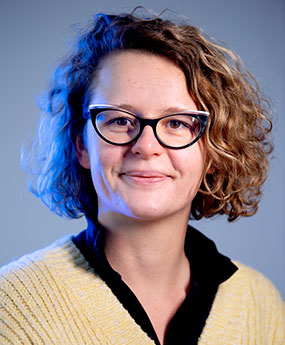

Justine Beauson
Technical University of Denmark, Denmark
Justine Beauson
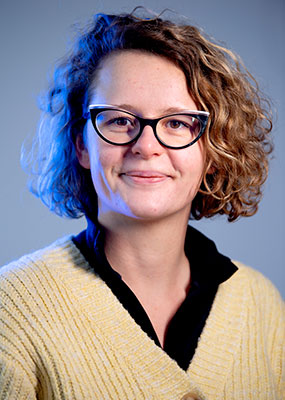 Justine Beauson
Justine Beauson
Justine Beauson is a research and development engineer in the field of composite materials for wind turbine blades. Since 2012, her field of expertise is within the characterization and the recycling of composite material from wind turbine blades. She received her MSc(Eng) from the University of Technology of Compiègne in France, and her PhD from the Technical University of Denmark. She has written 10 peer-reviewed journal articles. Since 2021, she is co-leading the international research network on the topic of wind turbine blade recycling, the International Energy Agency (IEA) Wind Task 45. The ambition of this network is to group the expert working on the topic of wind turbine blade recycling, to produce overviews and analysis of the situation and formulate recommendations for future work. Since 2021, she is also involved in the Danish project named DecomBlades, about the recycling of wind turbine blades. Together with the partners, the objectives is to find ways to take advantage of the recycled materials prepared using mechanical recycling and pyrolysis.
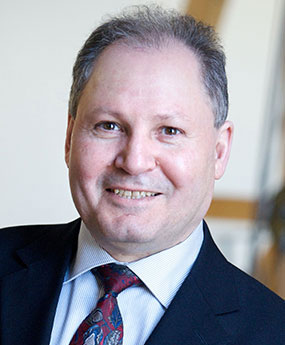

Brahim Benmokrane
University of Sherbrooke, Canada
Brahim Benmokrane
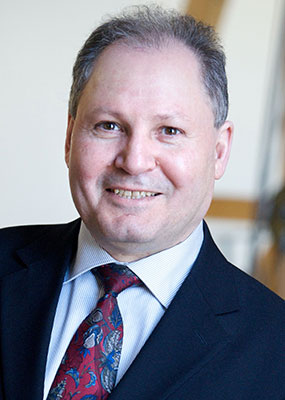 Brahim Benmokrane
Brahim Benmokrane
Brahim Benmokrane is one of the world’s top in the field of structural concrete internally reinforced with fiber-reinforced polymer (FRP) reinforcement. His research has significantly influenced the development of concrete structures reinforced with FRP bars, building codes, design specifications, and its practical use in North America and beyond. He has pioneered the development of related specifications and industry standards for using these new structural materials. His recognition as a leader in his field is not limited to his colleagues in academia but extends to industry, professional societies, and public agencies. His contributions go beyond his cutting-edge research to include leadership and involvement in developing international design codes and specifications for engineers and users. His research and professional services have been recognized with several awards. Some of his more note-worthy awards have come from ACI, CSCE, CSA, IIFC, NSERC, and the Royal Society of Canada (Fellow of Academy of Science). He is one of the scientists most cited in the world in the field (17,400+ Citations, h-index=71, by Google Scholar). Professor Benmokrane holds the Tier–1 Canada Research Chair in Advanced Composite Materials for Civil Structures and the NSERC-Alliance Industrial Research Chair in Innovative FRP Reinforcement for Sustainable Concrete Infrastructures at the Department of Civil and Building Engineering at the University of Sherbrooke (Sherbrooke, QC, Canada). He currently leads a research group of 32 and has trained 170 researchers. He founded the world’s largest research lab on FRP reinforcing bars for concrete structures at the University of Sherbrooke, which helps the industry in developing and receiving approval for new construction materials requiring certification under International Codes and Standards. Over the last 25 years, Professor Benmokrane has worked with Canadian and international engineering firms and government departments and counts many world firsts to his credit in terms of bridges, parking facilities, water-treatment plants, and tunnels. He has acted as a consultant on major national and international projects using FRP bars, such as the Nipigon Cable Stayed Bridge on the Trans-Canada Highway (northwestern Ontario, Canada), Highway 40 & Champlain Bridge (Montreal, Canada), TTC Subway North Tunnels (Highway 407) (Toronto, Canada), Port of Tanger Med II (Morocco), and Port of Miami Tunnel (FL, USA).
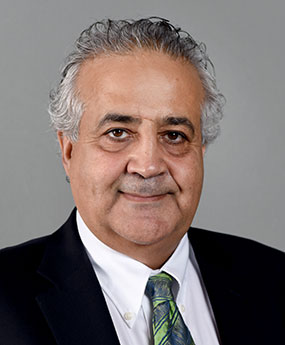

Barzin Mobasher
Arizona State University, USA
Barzin Mobasher
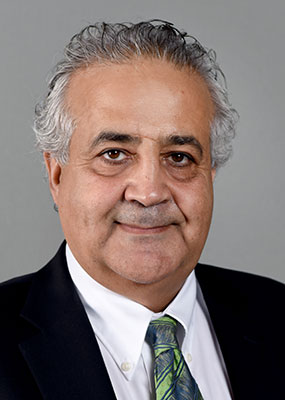 Barzin Mobasher
Barzin Mobasher
Barzin Mobasher obtained his PhD. in Civil Engineering from Northwestern University in 1990 respectively, and after a brief two-year career in Industry, he joined Arizona State University in 1991 as an Assistant Professor of Structural Materials. He has been a professor of engineering at the School of Sustainable Engineering and Built Environment at ASU since 2004. Dr. Mobasher has led programs involved with the design, analysis, materials testing, and full-scale structural testing of construction, structural, and aerospace materials. His publications include two books on fiber and textile-reinforced concrete, five edited books, and more than 200 research papers in leading professional journals and conference proceedings. His fundamental contributions in the fields of fiber and textile-reinforced concrete materials and mechanics of toughening in UHPC cement-based systems, durability modeling, and experimental mechanics. He has served as the Chair of the American Concrete Institute, ACI committee 544 on Fiber Reinforced Concrete, and is currently serving the Technical Activities Committees of both ACI and RILEM. He is a member of ASCE and associate editor of the journal of Materials and Structures with RILEM.
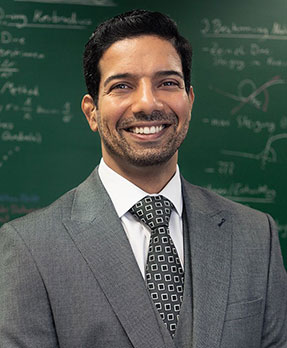

Elyas Ghafoori
Leibniz University of Hannover – LUH, Germany
Elyas Ghafoori
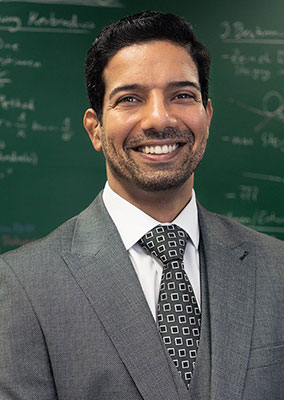 Elyas Ghafoori
Elyas Ghafoori
Elyas Ghafoori is a full professor and the chair of “Steel, Composite and Lightweight Construction” in the “Faculty of Civil Engineering and Geodetic Science” at the “Leibniz University of Hannover (LUH)”, Germany. He is the Executive Director of the “Institute for Steel Construction” and Deputy Director of Test Centre Supporting Structures (TTH) in Hannover. Prior to joining the LUH, he was the leader of “Sustainable Metallic Structures (SUMS)” group at the Swiss Federal Laboratories for Materials Science and Technology (Empa) and also a lecturer at ETH Zürich, Switzerland.
During his academic career, Elyas has primary worked on development of different FRP-retrofit concepts and models for repair and strengthening of aging steel structures. Lifetime extension of existing steel structures reduces the demand for production of crude steel and serves as one of key pathways toward Net Zero 2050 in steel industry. In particular, he has developed a prestressed unbonded retrofit (PUR) concept using FRP composites, which has been used for strengthening of several steel bridges around the world. One of his main current research topics is on the use FRP composites for repair and reuse of support structures (e.g., steel towers, jackets and foundation) in on- and offshore wind turbines as one of the most important infrastructures for producing renewable energies.
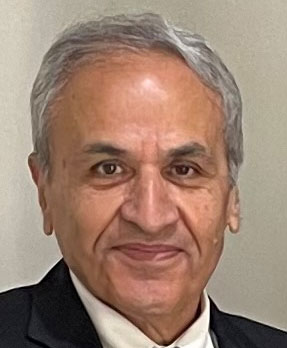

Riadh Al-Mahaidi
Swinburne University of Technology, Australia
Riadh Al-Mahaidi
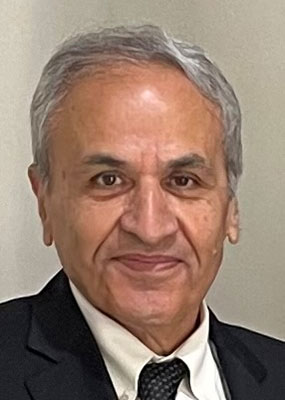
Riadh Al-Mahaidi
Dr Riadh Al-Mahaidi is a Professor of Structural Engineering and Director of the Smart Structures Laboratory at Swinburne University of Technology in Melbourne, Australia. He also held the position Vice President (International Engagement) at Swinburne from 2017 to 2022. Prior to joining Swinburne in January 2010, he was the Head of the Structures Group at Monash University. Over the past 20 years, he focused his research and practice on lifetime integrity of bridges, particularly in structural strength assessment and retrofitting using advanced composite materials. He currently leads several research projects on strengthening of bridges using fiber reinforced polymers combined cement-based bonding agents, fatigue life improvement of metallic structures using advanced composite systems and shape memory alloys. He recently started some projects on collapse assessment of structures through multi-axis hybrid testing. He received a BSc (Hon 1) degree in civil engineering from the University of Baghdad and MSc and PhD degrees in structural engineering from Cornell University in the United States.
To date, Professor Al-Mahaidi published over 250 journal and 270 conference papers and authored/edited 10 books and conference proceedings. He was awarded the 2012 Vice Chancellor’s Internationalization Award, the RW Chapman Medals in 2005 and 2010 for best journal publication in Engineers Australia Structural Journal, best paper awards at ACUN-4 (2002) and ACUN-6 (2012) Composites conferences. Prof Al-Mahaidi and his research group won the 2016 Engineers Australia Excellence Award for Innovation, Research and Development (High Commendation) for the Multi-Axis Substructure Testing (MAST) System they built at Swinburne. He was awarded the 2017 WH Warren Medal by Board of the College of Civil Engineers of Engineers Australia and the 2018 ARRB Research Impact Award. He was recently awarded the 2021 IABMAS Special Service Award, International Association for Bridge Maintenance and Safety. He is a Fellow of: Institution of Engineers Australia, American Concrete Institute, American Society of Civil Engineers, The International Institute for FRP in Construction (IIFC), Institution of Civil Engineers (UK) and the Bridge Engineering Institute.
